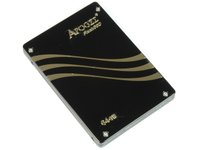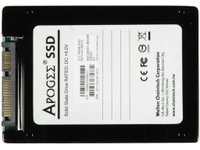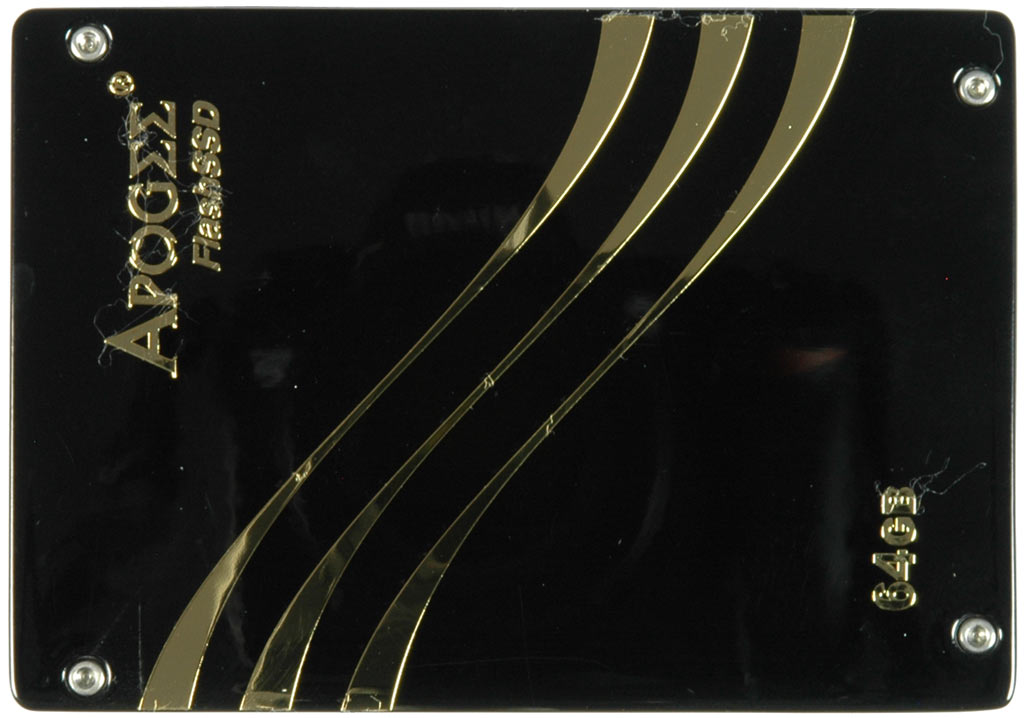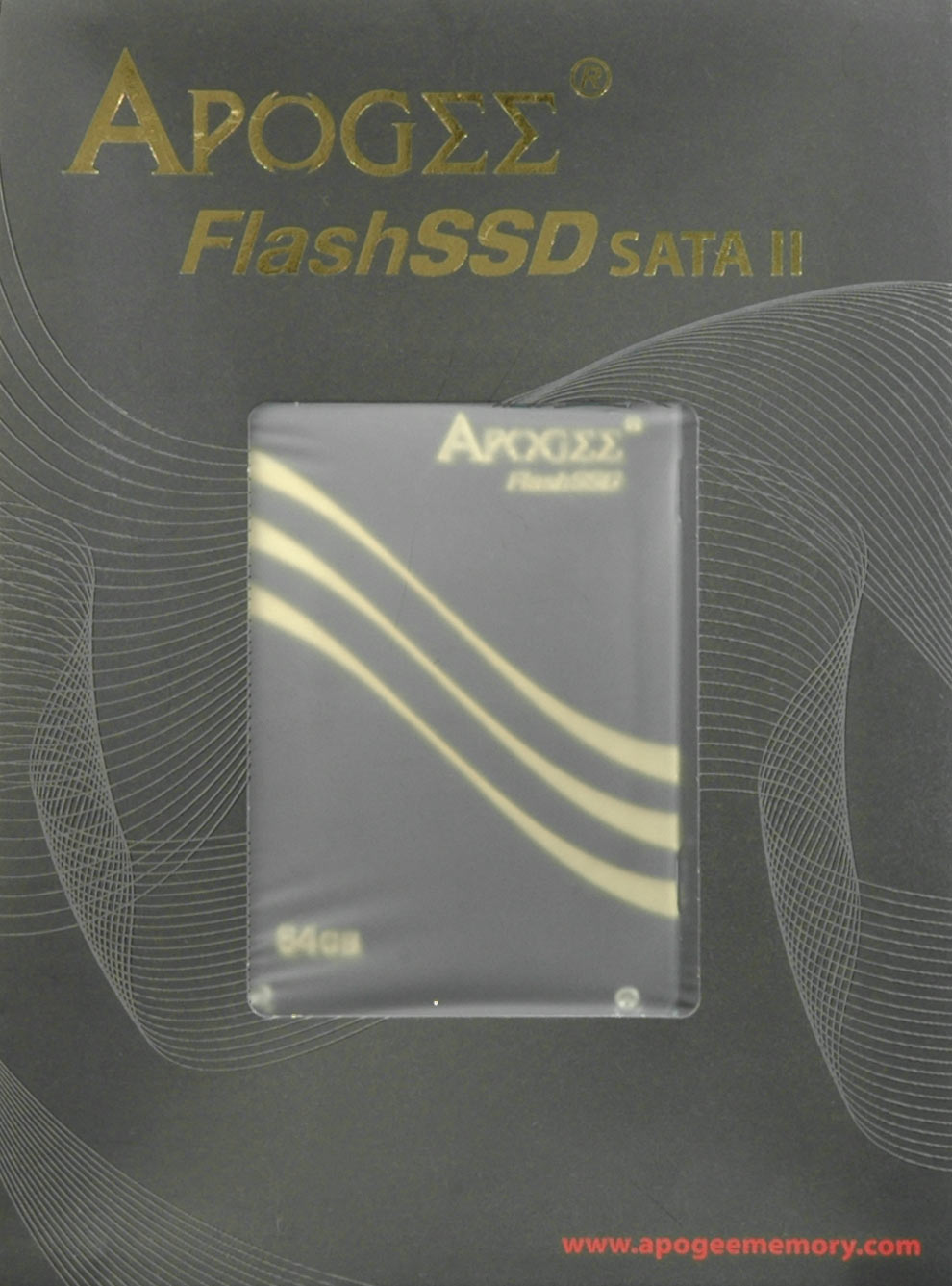Six New SSDs: Can Intel Be Dethroned?
Chaintech Apogee SSD, 64 GB
Chaintech’s product is named like its enthusiast memory modules: Apogee. The Apogee SSD is available at multiple capacity points; we received the 64 GB model for review. While most of the other flash SSDs utilize only a Serial ATA interface, this model comes with an additional USB 2.0 port, which makes it possible to utilize the Apogee SSD as a portable hard drive as well. The device can be totally powered by the USB bus, so you don’t need an additional power supply. However, USB performance will be limited to roughly 30 MB/s (which we did not include in the test results).
Pretty Fast And Terribly Slow
This drive reached read throughput of more than 111 MB /s on our storage test system. Some other SSDs reached up to 124 MB/s on our testbed, but only Intel’s X25-M drive delivered considerably more throughput (201 MB/s). Write performance, however, was disappointing. The multi-level cell (MLC) flash Chaintech drive only provided a maximum of 26.8 MB/s sequential write throughput, which is about as much as a three year old 2.5” notebook hard drive would deliver. The Apogee SSD also did well in our streaming read test, where it provided great results.
The Apogee’s average power consumption of 1.4 W is less than that required by most of the other flash SSDs, ensuring that the Chaintech drive reaches a nice performance per watt result in this category. On the other hand, there is the workstation I/O test: high-performance flash SSDs reach a few hundred I/O operations per second. Intel’s X25-M SSD scores 1,646 I/Os per second; the Apogee SSD reached 24 I/Os per second (yes, twenty four). This also has a severely noticeable effect on Windows XP start-up performance (see PCMark results). What a shame.
Power Consumption Saves The Day
In the end, there is still another reason to go for this drive despite its horrible I/O performance: idle power consumption is 0.68 W, which is a good result, and power use never exceeds 1.8 W at peak loads. At least this device will contribute to long notebook battery runtimes, as long as you don’t require it to process many I/O operations or store a lot of data. We believe Chaintech should really improve the performance characteristics of this device for the next revision or product generation.


Get Tom's Hardware's best news and in-depth reviews, straight to your inbox.
Current page: Chaintech Apogee SSD, 64 GB
Prev Page SSDs for 2009: They’re New, But Are They Better? Next Page Memory Corp F4 MLC SSD, 32 GB
